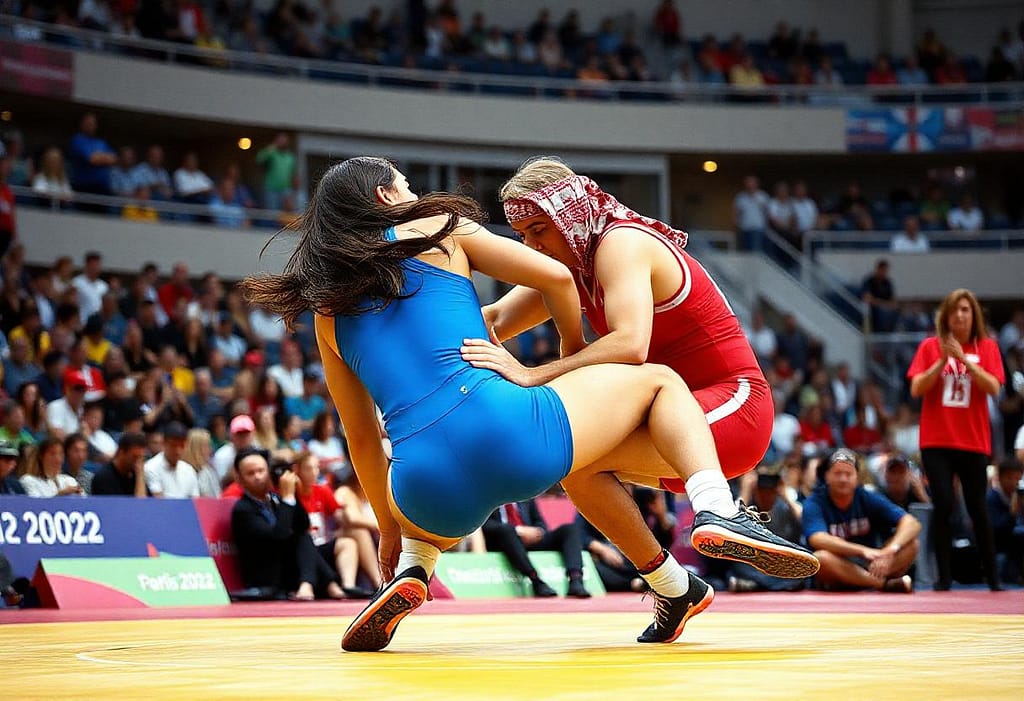
The world of sports is often a rollercoaster of emotions, filled with triumphs, setbacks, and controversies. Recently, one such controversy has come to light involving India’s star wrestler Vinesh Phogat. The Court of Arbitration for Sport (CAS), which acts as the supreme authority in international sports disputes, has rejected her petition to be awarded a silver medal for the 2024 Paris Olympics. This decision has sparked widespread debate and raises important questions about the fairness and integrity of sports arbitration.
The Backstory: Why Vinesh Filed the Petition
Vinesh Phogat is no stranger to the spotlight. A decorated wrestler, she has consistently represented India on the global stage, earning numerous accolades. As the 2024 Paris Olympics approached, she was considered a strong contender for a medal. However, during the event, a controversial match decision led to her losing a crucial bout, which ultimately placed her outside the medal standings.
Believing that the referees had made a significant error that affected the outcome of the match, Vinesh and her team decided to challenge the result. The petition filed with CAS argued that the referees’ decisions were not only erroneous but also biased, and that she deserved to be awarded the silver medal based on the merits of her performance.
CAS’s Verdict: A Rejection and Its Implications
The CAS, after reviewing the case, rejected Vinesh’s petition. This decision was based on the premise that the match results, once declared, are generally considered final unless there is clear evidence of misconduct or violation of the rules. In Vinesh’s case, CAS found that while the match may have been close and the decisions contentious, there was not enough evidence to overturn the original result.
For Vinesh, this rejection is undoubtedly a bitter pill to swallow. It not only denies her the chance to add another Olympic medal to her collection but also raises concerns about the broader issue of how athletes can seek redress when they believe they’ve been wronged.
The Debate: Fairness in Sports Arbitration
The rejection of Vinesh’s petition by CAS has ignited a debate among athletes, sports analysts, and fans alike. One of the central questions is: How fair is the arbitration process in sports?
On one hand, CAS is seen as a necessary body to ensure that disputes are resolved in a fair and unbiased manner. On the other hand, the rigidity of its processes and the high threshold for overturning decisions can leave athletes feeling powerless, particularly in cases where subjective judgment calls—like those of referees—play a decisive role.
What This Means for Athletes
For athletes like Vinesh, the CAS decision underscores the challenges of competing at the highest levels of sport. It serves as a reminder that while athletes can challenge decisions, the burden of proof is incredibly high. This can be disheartening for those who feel that their hard work and potential victory have been unfairly taken from them.
Moreover, the ruling highlights the importance of having robust, transparent, and fair systems in place to review contentious decisions in sports. While technology like VAR (Video Assistant Referee) has been introduced in some sports to minimize human error, wrestling and many other sports still rely heavily on the subjective judgments of referees and judges.
The Road Ahead for Vinesh Phogat
Despite the setback, Vinesh Phogat remains a formidable athlete with a bright future. The rejection of her petition by CAS is a significant blow, but it is unlikely to be the end of her story. With the resilience she has shown throughout her career, it wouldn’t be surprising to see her come back even stronger in future competitions.
For now, the focus will likely shift to her preparations for upcoming tournaments, and perhaps even the 2028 Olympics. As for the broader wrestling community, this case may serve as a catalyst for discussions on how to improve the fairness and accuracy of decision-making in the sport.
Conclusion
The rejection of Vinesh Phogat’s petition for a silver medal by the CAS is a poignant reminder of the complexities and challenges that define competitive sports. While it’s a disappointing outcome for Vinesh, it also raises important questions about the integrity of sports arbitration and the mechanisms in place to ensure fair play. As athletes continue to push the boundaries of human performance, the systems governing their competitions must also evolve to meet the demands of fairness and justice.
As fans, all we can do is continue to support our athletes, celebrate their achievements, and advocate for a sporting world where every competitor has a fair shot at glory.